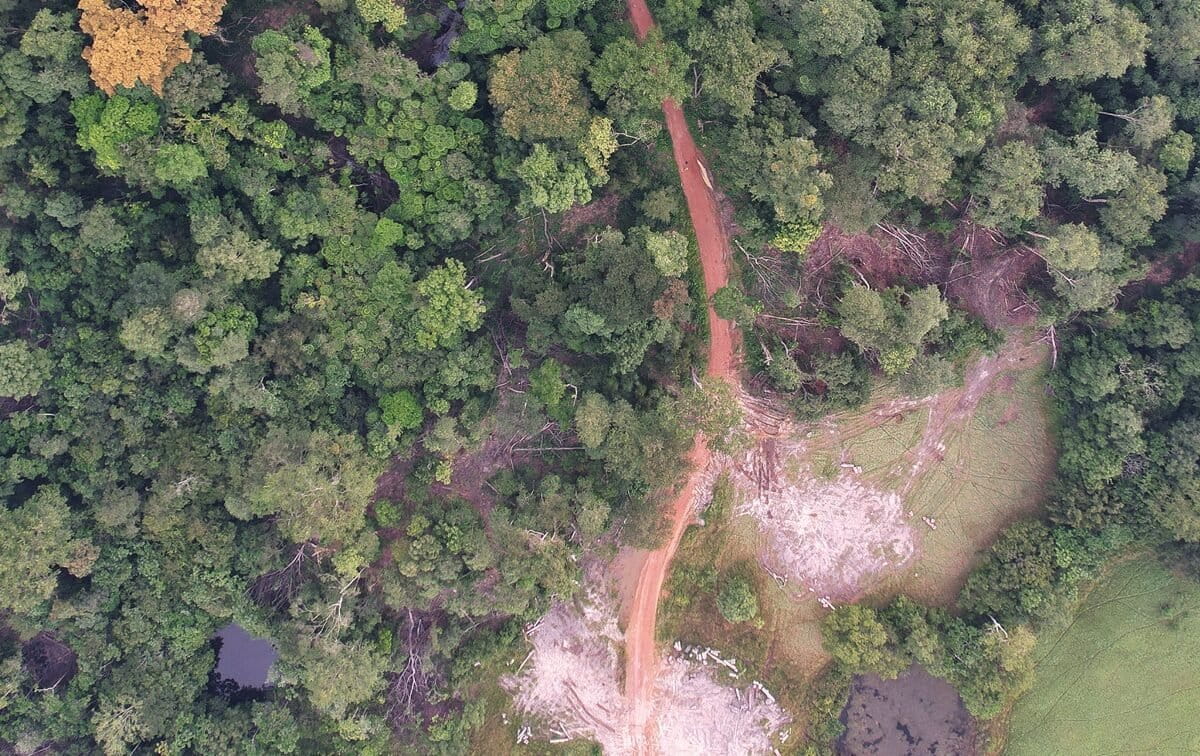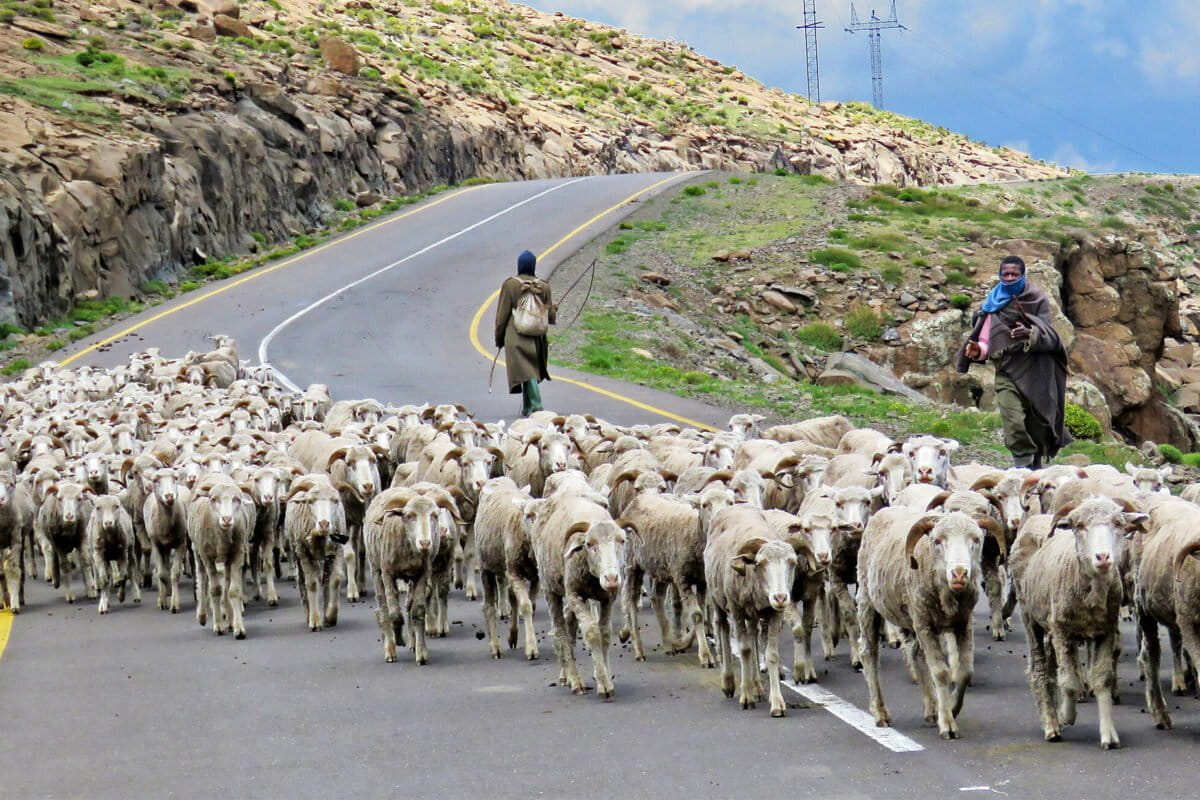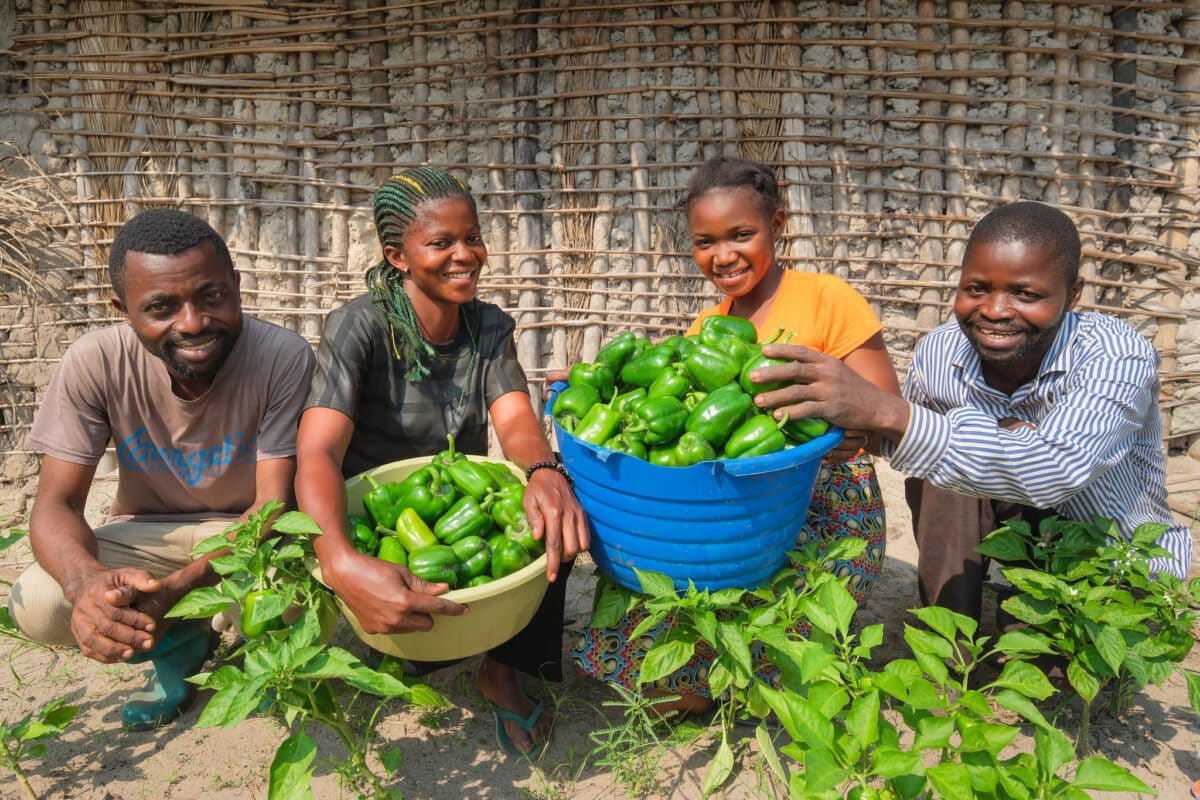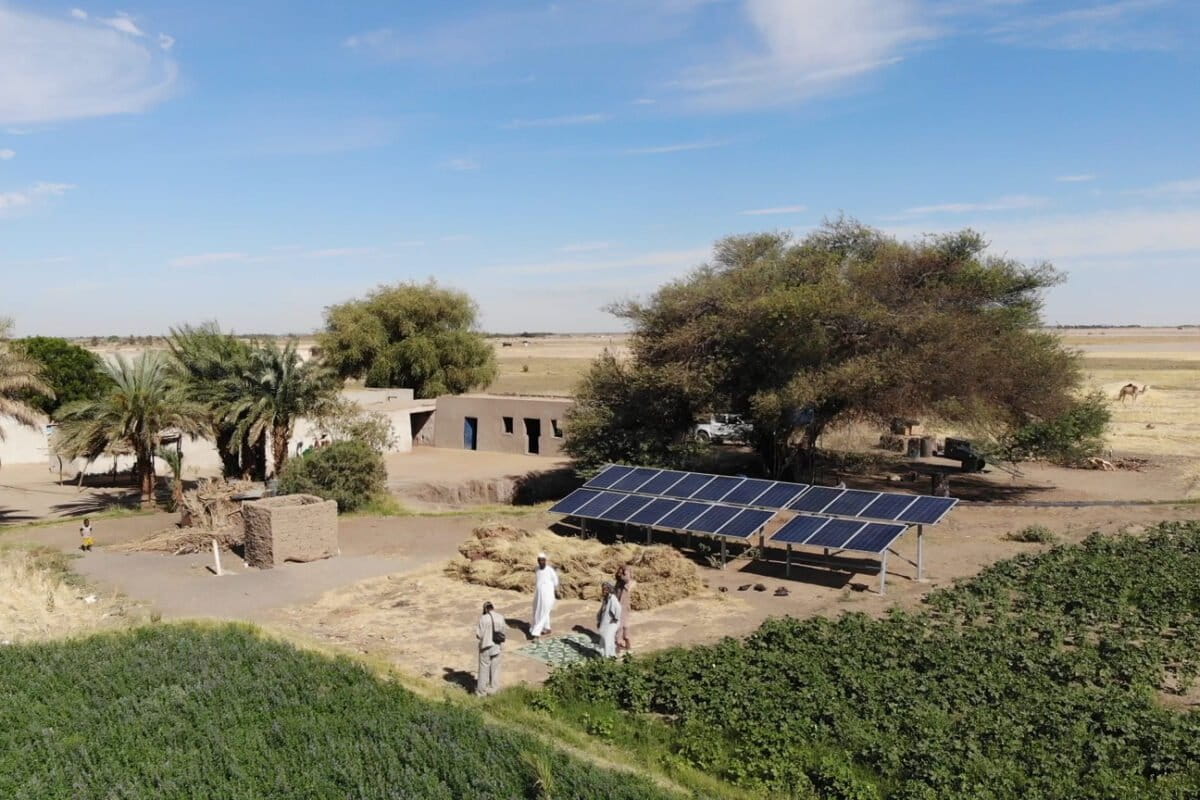- Human Rights Watch has detailed forced evictions, property destruction and violence against Indigenous communities living within a REDD+ carbon offset project area in southwest Cambodia.
- Trade of carbon credits from the Southern Cardamom REDD+ project were suspended last year amid similar allegations, and the project’s carbon certifier recently announced it’s expanding its ongoing investigation.
- Residents told Mongabay that Wildlife Alliance, the NGO that manages the project, has effectively outlawed their traditional methods of farming and livelihood, including restricting their access to sustainable forest products.
- Wildlife Alliance has denied the allegations, suggesting HRW has an agenda against carbon offsetting projects, but says it’s making improvements in response to the allegations.
PHNOM PENH — A new report published by Human Rights Watch on Feb. 28 details a litany of alleged abuses in the Southern Cardamom REDD+ project, which covers a vast swath of rainforest across Cardamom National Park in southwest Cambodia.
The 118-page report alleges that Wildlife Alliance, the conservation NGO that jointly manages the 465,000 hectares (1.15-million-acre) REDD+ project with the Ministry of Environment, didn’t secure the free, prior and informed consent (FPIC) of the largely Indigenous communities whose land was absorbed into the project to sell carbon credits.
The rights watchdog detailed numerous accounts from community members who alleged being forcibly and violently evicted by Wildlife Alliance staff as well as the government rangers and military police officers accompanying the NGO’s staff on patrols. According to HRW, customary land rights were ignored and Wildlife Alliance didn’t implement a formal benefit-sharing contract with the communities affected by the REDD+ project.
Prior to the report’s release, Wildlife Alliance published a roughly 10,000-word open letter on Dec. 21, 2023, countering the claims made by HRW and expressing concerns over how the report was produced, as well as accusing HRW of failing “to acknowledge and incorporate into their allegations a comprehensive view of the project’s full impacts, nor critical elements of project- and country-level context.” (Wildlife Alliance’s website was in “maintenance mode” when Mongabay published this story; a snapshot of its open letter was archived here on March 8.)

Conflict with the communities
“Sometimes they destroy people’s crops, sometimes they burn down people’s huts and rice fields, sometimes they arrest villagers, while we just try to survive,” Hoeung Pov, an Indigenous leader in Pralay commune, Koh Kong province, told Mongabay via phone interview.
Five of the 29 villages that were incorporated into the Southern Cardamom REDD+ project are in Pralay commune. Pov is one of the estimated 16,000 villagers whose lives have become inextricably intertwined with the REDD+ project, which he says has drastically altered the way the community can interact with their ancestral land.
Like many of the residents in Pralay commune, Pov belongs to the Chong ethnic minority group that has called the Chhay Areng Valley home for centuries. The area was the site of one of the largest wins for Cambodian environmentalists when, in 2014, communities and activists banded together to oppose the construction of the highly destructive Stung Chheay Areng hydropower dam. But now, Pov said he’s constantly worried while facing off against the proponents of the Southern Cardamom REDD+ project.
“When the community cleared the land for their rotation farming, the NGO’s people came to install cameras to record the clearing activities and then filed a complaint to the court for cutting down the trees,” he told Mongabay. “Our community members have been sued, some had to flee the area.”
Pov said traditional swidden agriculture techniques employed by Chong communities across the Cardamom mountains have been outlawed by Wildlife Alliance, while land disputes have erupted over the failure to properly demarcate boundaries between the REDD+ project area and Indigenous residential land, farmlands and burial sites.
“When it came to work here, most people weren’t happy, as the NGO’s work is only to crack down on us,” Pov said. “They didn’t conduct meetings with the community to determine the boundaries of their working area or tell us what they were doing and which areas people could use. So when there was an issue with the people, [Wildlife Alliance] always suppressed them without a solution.”
Wildlife Alliance said that “over 98% of community members throughout the project indicated ongoing support” for the Southern Cardamom REDD+ project. However, according to HRW, this assessment is based on a single “yes or no” question asked in a meeting attended by only a small percentage of affected individuals, and doesn’t reflect the actual population living inside the project area.
Based on the official population of each village, five out of 11 villages garnered less than 10% of the total population’s approval, while in the remaining six villages, the number of people who voiced their support for the project represented between 11.6% and 16% of the villages’ total population.

Rallying around the REDD+
Wildlife Alliance declined to answer specific questions sent by Mongabay, but Suwanna Gauntlett, the NGO’s director, took to X (formerly Twitter) on Feb. 29 saying the HRW report “presents a fundamentally misleading picture of our work,” and questioning “Is Human Rights Watch seeking to undermine the project simply as a means to criticize the REDD+ system?”
The report, Gauntlett’s post suggested, “conveniently fit the narrative HRW had already created as part of their advocacy on international carbon markets.”
HRW has previously criticized the carbon market for failing to protect the rights of communities involved, while also highlighting that poorly implemented projects do little to actually reduce emissions.
Gauntlett directed reporters to the open letter that Wildlife Alliance published in December 2023, which categorically denies the allegations put forward by HRW.
The open letter states that the REDD+ project has resulted in 27.6 million metric tons of verified CO2 emissions avoided to date, the preservation of 442,870 hectares (1.09 million acres) of a protected national park, the rescue of 3,058 live animals from hunters’ snares, as well as the removal of 175,534 snares and the seizure of 5,624 chainsaws and 27,721 logs.

Global Forest Watch data show that some 1,400 hectares (about 3,500 acres) of primary forest were lost between 2016 and 2022, while the REDD+ project has failed to protect the forest from the construction of new large-scale hydropower dams within the project area and along its borders.
The REDD+ project is estimated to have earned some $18 million by late 2021, with $6 million reportedly spent on the project itself, although there’s no publicly available breakdown of how this money was spent. Neither Wildlife Alliance nor the Ministry of Environment have ever revealed exactly how much the Southern Cardamom REDD+ project has earned from the sale of carbon credits.
Gauntlett’s open letter states that, “In 2023 the project’s community development and alternative livelihood programs received $2,045,733 — accounting for 36% of the annual project budget.”
But Pov, the Indigenous leader, said Wildlife Alliance has never shown him receipts or detailed the costs for the schools and wells it built across Pralay commune as part of its community development program.
“We did not know how much the costs were or how much the community received per year, it’s a matter we doubt,” he said. “Even when I asked the commune chief how much the school building cost, as [Wildlife Alliance] supported it, he did not know either.”
The future of the project remains unclear after Verra, the project’s carbon credit certifier, announced on June 19, 2023, that it was opening an investigation into allegations of abuses and suspended the issuance of credits from the project. Almost eight months later, on Feb. 1, 2024, Verra announced the scope of its review into the Southern Cardamom REDD+ project had expanded to cover the verification work conducted by auditors and consultants.
A spokesperson from Verra told Mongabay, “In June 2023, following concerns raised by Human Rights Watch, we quickly initiated an investigation into the Southern Cardamom REDD+ Project — which suspended the issuance of any additional credits until further notice. Earlier this month, Verra expanded the scope of its review to follow additional avenues of investigation.”
The company declined to provide information on the ongoing investigation, “in order to preserve the integrity of the process and prevent any undue influence.”
Wildlife Alliance’s open letter expressed concerns over Verra’s review process, which the NGO said has no clear timeline or procedures, thereby “causing the project and its stakeholders harm, and stands in contrast to the approach taken by other standards and certification systems to similar matters.”
Everland, the marketing firm that brokers the sale of credits generated from the REDD+ project, didn’t respond to Mongabay’s requests for comment, but released a statement on Feb. 29 saying the company “remains committed to the Southern Cardamom REDD+ Project given Wildlife Alliance’s thorough responses to the allegations and the tremendous positive impacts the project has achieved for human rights, sustainable development and forest conservation.”

A litany of alleged abuses
Human Rights Watch has spent some two years investigating the impact of the REDD+ project on the lives and livelihoods of those living inside the Southern Cardamom REDD+ project area, including interviewing 91 residents from 23 of the 29 villages that have been absorbed into the project.
Many of the accounts mirror those reported by Pov.
The report states that Wildlife Alliance conducted project activity 31 months prior to consulting with the Indigenous Chong communities, which HRW argues violated the communities’ right to FPIC, one of the central tenets that REDD+ projects are supposed to be based on.
According to Pov, he only really became aware of the REDD+ project sometime between 2019 and 2020, roughly a year after the project received its first validation and verification in December 2018.
“A lot of community members weren’t happy with that project as we knew nothing about it and the NGO’s people work didn’t respect our rights,” he told Mongabay.
Investigators for HRW also detailed how members of the Chong communities inside the REDD+ project had been forcibly evicted from their land, arrested, and in some cases held in pretrial detention for months before their case was heard in court. Many reported being mistreated during these confrontations.
Wildlife Alliance denied these allegations in its December 2023 open letter, writing, “We also must reaffirm that the [Southern Cardamom REDD+ project] has not committed forced evictions, sought criminal penalties for the collection of non-timber forest products (NTFPs), or conducted arbitrary searches of houses.”
The letter added that all operations and actions related to the project conform to Cambodian law.
Nheuk Choeun, a Chong resident of Chumnoab commune, not far from Pralay, told Mongabay that her rice crop was destroyed by a Wildlife Alliance patrol in 2022, despite her having farmed a small rotational plot since 1999.
“On that day, they rode a motorcycle with guns and my husband was trying to transport the grain, but he was a bit slow compared to them, so he tried to hide,” she said. “He was scared that if they saw him, he might be arrested, but then they gathered the grain and burned it. I did not dare to build a hut as I feared being burned, but they still found out and burned my rice harvest.”
Choeun told Mongabay that it was Wildlife Alliance staff, and not government rangers or military police officers, who set fire to her rice crop. She said she hasn’t dared to continue her traditional farming methods since.
“It is very difficult to earn a living, as we live close to the forest, so our job depended on the harvest of nontimber forest products and farming,” she said. “It affected my family’s living so badly.”
These allegations closely resemble the ones previously reported by community members from inside the Southern Cardamom REDD+ project, as well as those living in Botum Sakor National Park, where Wildlife Alliance previously operated until multiple large-scale economic land concessions rendered conservation efforts moot.

Inconsistent tactics
For Pov, these interactions reflect a disparity in how Wildlife Alliance approaches environmentally destructive behavior.
“They just prevent the community from entering the forest, but not the outside people who come in to take trees freely,” he said.
Choeun agreed, saying the REDD+ project prevents small-scale farming done by the local community while failing to prevent powerful people from grabbing land and destroying the forest.
“When I was clearing some forest for farming, they tried to catch and arrest me, but when the big people were transporting timber over the road, no-one could see — maybe I don’t have the money to keep them silent,” she said. “I don’t know or understand why they don’t see it, as there were big trucks. Why don’t they arrest them while they always try to arrest us when we transport fence posts or firewood always try to arrest us.”
In its open letter, Wildlife Alliance denied that there had been forced evictions, and said the destruction of “illegal structures” in protected areas was done by Ministry of Environment judicial police and military police officers with technical support from Wildlife Alliance.
“All of these legal procedures conform with the Law on Protected Areas and the Criminal Code Procedure, which are in conformity with the Constitution of Cambodia,” Wildlife Alliance wrote in the open letter.

The Royal Gendarmerie Khmer, which provides military police officers to Wildlife Alliance, has long been accused of summary executions, excessive force, political assassinations and corruption.
The HRW report also details how sources interviewed by the watchdog were later tracked down by Wildlife Alliance, even in instances where the identities of those sources hadn’t been disclosed. In one such case, a source was visited at their home by Wildlife Alliance staff and two government officials, who then made the source sign a testimonial letter that gave a conflicting account to the one they’d provided earlier to HRW.
“In addition, these actions identified the witness to Cambodian government officials as someone who was interviewed by Human Rights Watch,” the report noted. “In Human Rights Watch view, [Wildlife Alliance’s] actions put [the source] at heightened risk of reprisals from Cambodian authorities.”
Both Pov and Choeun told Mongabay that Wildlife Alliance had frequently visited their communes trying to find out who had spoken to HRW.

Winds of change in the Cardamoms
Wildlife Alliance’s open letter detailed measures the project will take to redress some of the grievances highlighted in the Human Rights Watch report, including the hiring of a full-time conservation community officer to liaise with communities in the REDD+ project, the provision of pro bono legal counsel contacts to those caught and arrested by the NGO’s patrols, as well as heightened engagement with the Chong communities.
“In response to a request made by [Chong] representatives, the Project will work with the [Chong] to establish, train, and support an [I]ndigenous Community Patrol team in the Chhay Areng Valley, modeled after the Chi Phat Community Anti-Poaching Unit that has been piloted elsewhere in the Southern Cardamom REDD+ Project,” the letter said.
It also noted that Wildlife Alliance staff will improve their procedures for the documentation of evidence during law enforcement procedures, as well as provide formal human rights training in conjunction with the United Nations’ human rights agency, and said it has since developed a human rights policy.
“Based on HRW’s recommendation, we have improved the Grievance Boxes by increasing the number of grievance boxes in 29 villages beneficiaries of the Southern Cardamom REDD+,” the letter added. “We have also installed an additional 17 in public locations.”
Lastly, the letter said Wildlife Alliance has been advocating for the Koh Kong provincial administration to issue land titles, particularly in Chumnoab commune, since October 2023, although the NGO noted that it doesn’t have the authority to determine how these efforts will fare.
Choeun, who lives in Chumnoab, said, “I don’t have a land title yet because the authorities just came down to measure it, but some 7 hectares [17 acres] of my farmland paddy, which has dense forest trees, was not measured.”
Pov also told Mongabay that land authorities came to measure his land, but didn’t measure much of his traditional farmlands as they were situated inside the protected area.
“On March 18, 2022, the [Ministry of Environment] and [Wildlife Alliance] concluded the zoning map of the Southern Cardamom National Park — which makes up most of the Project Area of the REDD+ Project — and they zoned most of the park as a Core Zone,” the HRW report states. “By virtue of its design, the project restricts access to sustainable forest products for Indigenous peoples in a substantial area.”
While the future of the Southern Cardamom REDD+ project remains uncertain, Wildlife Alliance have quietly set about establishing a new REDD+ project in Phnom Samkos Wildlife Sanctuary, with the borders of the two projects adjoining along the Koh Kong-Pursat provincial borders.

For veteran environmental activist San Mala, who has worked extensively in the Cardamoms, REDD+ projects such as those operated by Wildlife Alliance still have a role to play in preserving Cambodia’s forests as they reduce the reliance on the exploitation of natural resources. But, he said, such projects must center the rights of the traditional custodians of the forests.
“The government has to guarantee that REDD+ projects’ implementation does not affect the Indigenous people’s way of life,” he said. “They have always faced crackdowns or legal threats from Wildlife Alliance from what I heard from those people, so for me, respecting the rights of Indigenous peoples and guaranteeing that they can continue to practice their traditional way of life and their use of land is important, and the government must ensure that their rights are not violated.”
Banner image: The Cardamom Mountains are home to one of Cambodia’s best preserved rainforests, but REDD+ projects have so far failed to prevent large-scale deforestation linked to infrastructure development inside the protected area. Image by Andy Ball / Mongabay.














